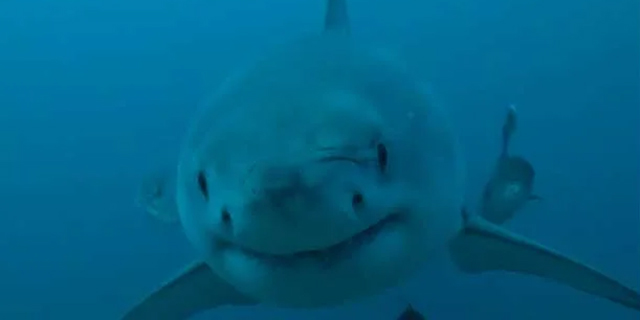Mississippi, Alabama researchers capture rare sighting of great white shark off Gulf Coast
Published 7:36 am Thursday, May 9, 2024
Researchers say they a rare great white shark off the Gulf Coast last month and named her Miss Pawla.
The first sighting of the juvenile female shark, approximately 8 feet in length, was captured in mid-April with underwater cameras during a survey with researchers from the University of South Alabama, Mississippi State University and Florida’s Fish and Wildlife Research Institute. Ten days later, she was still roaming the same site.
The University of South Alabama researchers recently captured the video while monitoring fish movement near the state’s artificial reef zone. This past Friday, the shark was gone.
White sharks can live more than 50 years. Based on her size, the female in the video is around 15 years old. She will reach maturity at least 30 years later.
In the U.S., white sharks are increasingly common in the cooler waters off New England and California. White sharks have been reported from other areas of the Gulf of Mexico, usually in deeper, cooler waters. According to Dr. Sean Powers, Director of USA’s Stokes School of Marine and Environmental Sciences, their occurrence off the Alabama coast is rare. This shark was spotted in approximately 150 feet of water where the reef was located and is the first known sighting in that area recorded by scientists.
Recent reports of a white shark seen by divers in coastal Alabama – one caught by fishermen and another washed up dead on a Florida Panhandle beach – suggest that the species may be more common in the northern Gulf of Mexico than originally thought.
“We have surveyed over 1,000 artificial and natural reef areas over the last 10 years, providing scientific data to assist the State of Alabama in managing its offshore fisheries,” said Powers. “This is our first documented sighting of a white shark.”
White sharks can be identified by their unique scarring pattern on their body particularly their head and fins, and usually named so scientists can track their movements. This juvenile has never been recorded before, so she was named after one of South’s mascots, Miss Pawla. The University’s other mascot, SouthPaw, already inspired the naming of a 12-foot tiger shark, SouthJaw, and that shark carries a satellite tracker. He can be tracked on the Ocearch.org website.
Alabama has a rich marine ecosystem, and sharks are an important element. Anglers are reminded that white sharks are a federally prohibited species and must be released alive if caught. Funding for the surveys was provided by the Mississippi-Alabama Sea Grant Consortium and Alabama’s Department of Conservation and Natural Resources, Division of Marine Resources.






